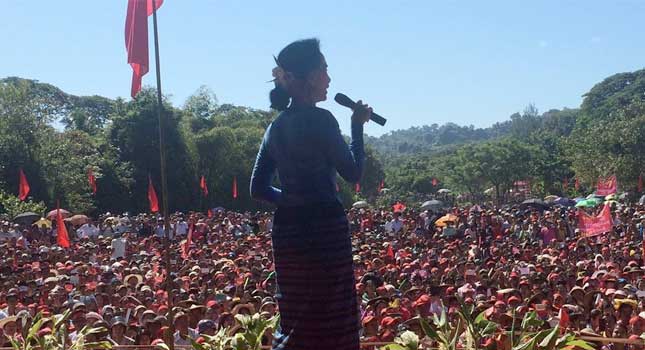
However, the problems don’t entirely end there as there’s still a fair amount of political manoeuvering to do before she can take her rightful place at the head of the government. The biggest of these is the fact that conditions have been added to the constitution during her fifteen year house arrest that bars her from becoming the president, so instantly there will need to be an appointment to that role from the NLD party that isn’t the party leader.
The constitutional amendment made in 2008 states that anyone with children of foreign citizenship would be banned from the post, which includes Aung San Suu Kyi as both her sons hold British passports. However, even without this there would still be a parliamentary vote to elect the president, which is the next step in the battle, made all the more difficult considering the 25% control the military has automatically, but the fact that Suu Kyi and the NLD has won by such a significant majority would indicate that they have their best shot yet at forming the government. However, we’ll have to wait until 2016 to see how this will pan out after the Houses of Parliament resume sessions in January.
To add even more complexity into the mix, she has publicly stated that she will lead the government irrespective of the parliamentary elected president, as she will remain the leader of the party with a good size, potentially controlling vote in parliament. However, that still may not result in her having enough sway to be able to make constitutional reforms that would free her to go for the presidency next time around, so her influence could be by proxy for the foreseeable future.
More importantly, changes to the constitution also require military backing, so even if she were able to get enough support she would still need military backing to pass the amendments, meaning there will need to some significant bridge building before the presidential barriers are overturned. Essentially, the odds are still stacked against Aung San Suu Kyi, but considering the fact that she was only released from house arrest in 2010 she’s clearly made a lot of ground already, so who knows what she’ll be able to achieve in another five years with her own party in the majority.
However, this isn’t the first time she has swept to victory in the Burmese (Myanmar) elections as the democratic campaigner and her party took the victory previously in 1990, taking a significant majority of the parliamentary seats. This was blocked by the military, resulting in 15 years of house arrest for Aung San Suu Kyi and thirty more years of military rule for the country, which is why the 2015 general election is considered such a landmark moment in the history of Burma. This time around it would appear that the military are going to reconcile relations with the largely civilian government that will now form, but it will be interesting to see if this is the modernisation the country is clearly longing for.


